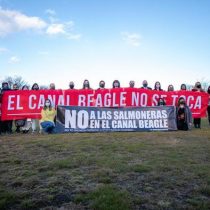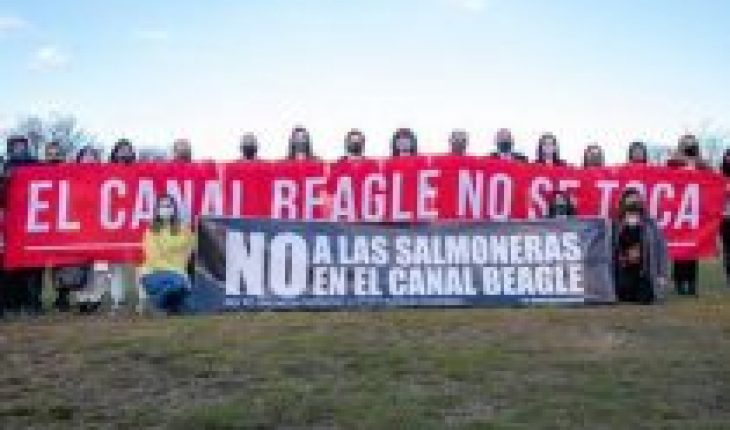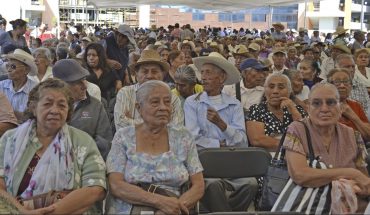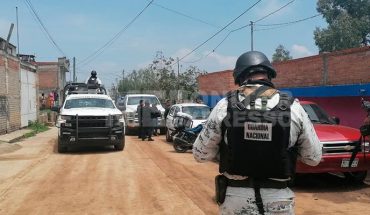
The Argentine province of Tierra del Fuego unanimously approved a bill banning salmon farming in its territory. This is a pioneering initiative worldwide. “It is a historic milestone in that it transforms Argentina into the first country in the world to ban intensive industrial salmon farming,” says Estefanía Gónzalez, oceans campaign coordinator at Greenpeace Andino, which brings together Argentina, Chile and Colombia.
“There are several countries around the world that seek to eradicate this industry but have not succeeded,” says David López Katz, an activist and member of the environmental organization Sin Azul No Hay Verde, which seeks to protect the habitat and species of the coasts and the Argentine Sea, in an interview with DW.
The regulations prohibit the intensive cultivation of salmonids in provincial, marine and lake waters. However, it is approved “before the industry comes to settle, “says González, recalling that “in general, it happens a posteriori, as is the case of the State of Washington, which decided to end salmon farming until 2025, precisely because of environmental disasters.”
According to both experts, in 2018, the Argentine national and provincial governments signed an agreement with Norway to promote salmon farming in the waters of the Beagle Channel, in Tierra del Fuego. However, this national initiative was rejected by local communities.
Local fishermen. The law “regulates the cultivation on land of trout for gastronomy and the repopulation of the species for sport fishing,” explains López.
These protests had the support of the neighboring country. “Chile’s own communities traveled to Ushuaia to tell their experience and show the devastation that salmon farming has meant,” says González.
In addition to an exchange with that country on the benefits and disadvantages of this activity, researchers from the University of Buenos Aires (UBA) carried out an economic study on it. In this way “a broad debate began, which led to the presentation of this bill by legislator Pablo Villegas, and which was finally approved unanimously,” adds the coordinator of the Oceans campaign at Greenpeace Andino.
Thus, “both the community and the provincial government concluded that they are not willing to put at risk their natural values and the more than 17,000 jobs generated by tourism, which depend on the Beagle Channel,” stresses the activist of Sin Azul No Hay Verde.
Beagle Channel: the law seeks to protect the environmental, tourist and local development heritage of the Province of Tierra del Fuego.
Protecting “The Gateway to Antarctica”
“The Beagle Channel is one of the last bastions of pristine waters in the world,” recalls López. For that reason, “one of the few places in Argentina where the conditions for salmon farming are given was precisely Tierra del Fuego, where companies saw a logical expansion from Chile,” Liesbeth van der Meer, director of Oceana Chile, tells DW.
This is a fact with which Lopez agrees, who, however, points out that this law represents a brake on activity on the Chilean side, since the canal is part of the indigenous territory of the Yagán people that both countries share. For this reason, “Chile can no longer unilaterally decide to install salmon farms in an ecosystem that is shared,” says González.
In addition to being one of the main tourist heritages of both Ushuaia (Argentina) and Puerto Williams (Chile), the canal is one of the great carbon sinks of the planet and a biodiversity hotspot. “It communicates the waters of the Pacific and Atlantic Ocean and has an enormous wealth of marine mammals, birds, penguins, fish, crab…”, adds González.
“It is the gateway to Antarctica and part of a corridor of marine mammals that migrate annually, entering the channel to feed and reproduce,” says the Argentine activist. On the other hand, “it is practically the only channel in Argentina and does not have much depth, which makes it especially vulnerable to the pollution of its waters and its seabed,” he says.
Lopez lamented that the neighboring country “has based its productive matrix on salmon farming, generating a very important dependence on this activity.”
Chile, waiting
“We are very proud of what our neighboring country has achieved,” celebrates the director of Oceana Chile. “In the 80s, this industry took over.ionó as a promise of development and progress, which irreversibly damaged large portions of the tenth and eleventh region” laments, recalling that “there are few areas in our country free of salmon farming”.
Therefore, the organization’s efforts are focused on the defense of local communities and indigenous peoples of Chilean Patagonia. In this place, “that activity continues to be allowed and continues to grow,” he criticizes in conversation with DW Maximiliano Bello, executive advisor of Ocean Public Policy of the organization Mission Blue.
The Chilean expert questions the model that has been generated in the “vulnerable” region and that is affecting protected areas, and the Chilean authorities that González urged to “listen to the voice of citizens and communities.”
Data for April 2021.
“In the Magallanes region there are more than 120 concessions approved and another 168 in the pipeline,” says Estefanía González. “Many of these concessions, approved and in process, are within protected areas and in indigenous territory,” he says, urging that “the authorities stop boycotting the application for Protected Coastal Area of Native Peoples presented by the Yagan community more than a year ago, as it represents an alternative and a real opportunity for protection and sustainable management of the area.”
Maximiliano Bello also advocates looking for alternatives to salmon farming and recalls “the possibility that Patagonia and its waters play a role as a refuge for biodiversity in relation to the progress of climate change for both Chile and the world.”





